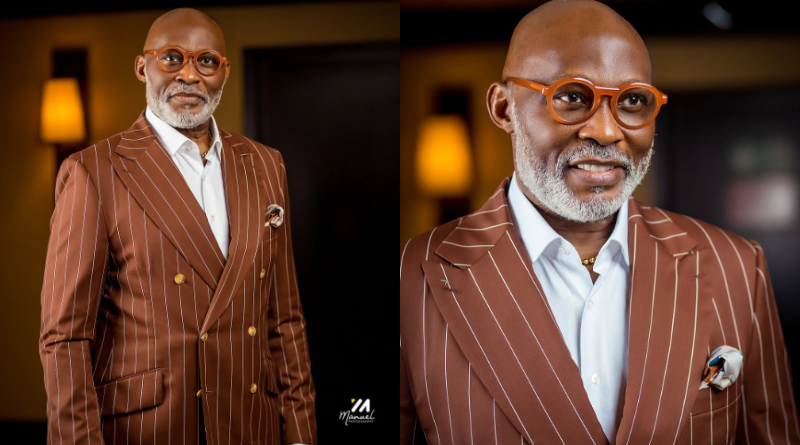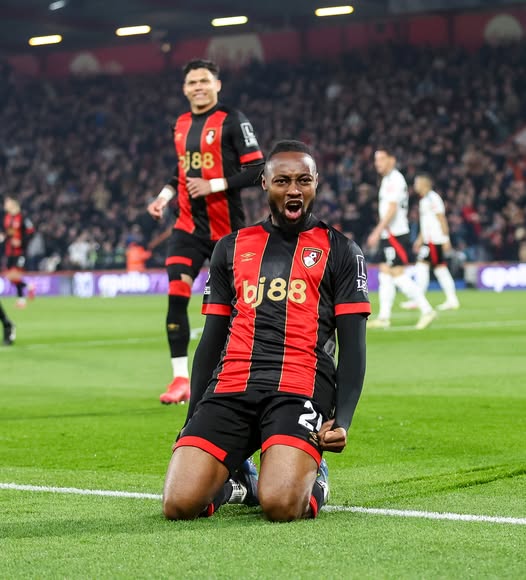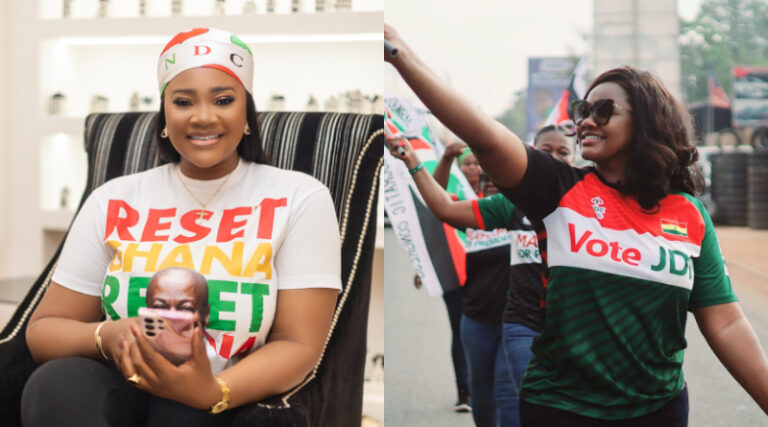Veteran Nollywood actor Richard Mofe-Damijo, popularly known as RMD, has candidly expressed his discomfort with being referred to as a “legend” in the film industry. The award-winning actor made this revelation during a recent appearance on Curiosity Made Me Ask, a YouTube interview series hosted by Nigerian skit maker Bea U.
RMD, who has graced both the screen and stage for decades, explained that while the title of “legend” may be seen as a form of reverence, he believes it comes with unintended implications that do not align with his current phase in life or career.
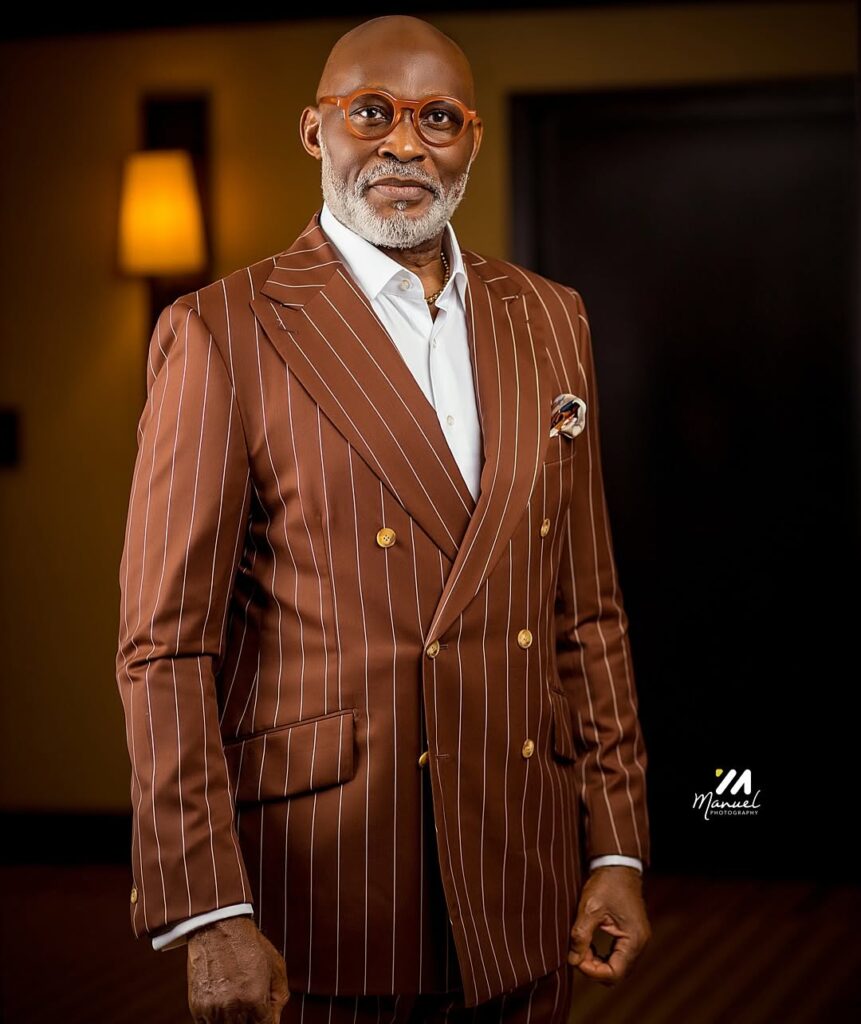
“I think all those legend thing is a scam,” RMD stated. “I have my legends like Uncle Olu Jacobs, Uncle Pete (Edochie)—those are our ancestors, our legends. I was still watching Pete when he was saying, ‘Ribena children are healthy children.’”
For the 62-year-old actor, being labeled a legend feels more like being boxed into a space reserved for retired or inactive entertainers. He clarified that while he deeply respects icons like Olu Jacobs and Pete Edochie—who he regards as true legends—he does not believe he has reached that stage yet.
“So I don’t subscribe to that,” he added. “I think it is a scam when they call me legend because they are trying to relegate me to that neighbourhood of retired people or should be nearing retirement. So, no, I don’t subscribe to it.”
RMD’s remarks have sparked discussions within the Nigerian entertainment industry and among fans, with many debating when exactly an actor earns the title of “legend.” Some agree with RMD’s sentiment, arguing that the label should be reserved for those who have completely exited the scene or have left a monumental legacy. Others believe RMD, with his decades-long contribution to Nollywood, is more than deserving of the accolade.
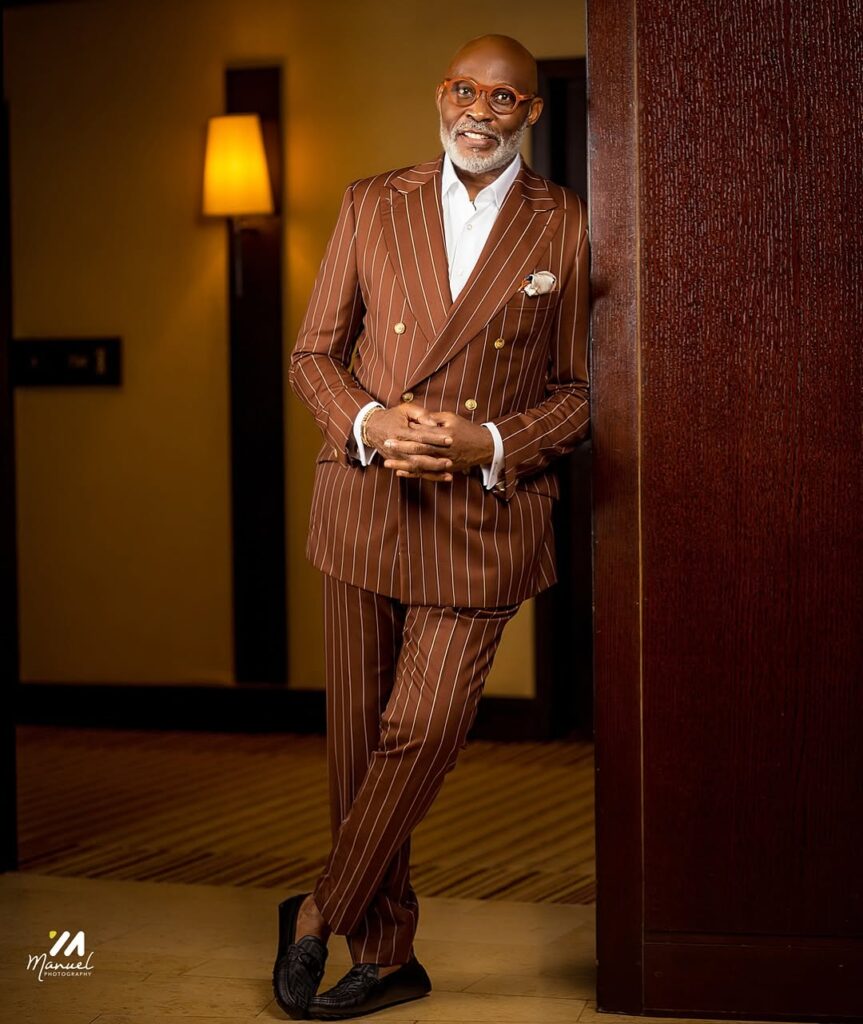
RMD’s portfolio includes a wide range of memorable performances in classic Nigerian films and modern cinema, along with roles in TV dramas and stage productions. Despite his longevity in the industry, he maintains that he is still active and contributing meaningfully to Nollywood’s growth.
This candid moment from RMD offers a deeper look into how veteran actors view their legacy and relevance. It also raises important questions about how the Nigerian entertainment industry honors its icons—and whether such titles help or hinder the perception of their continued contributions.
For now, RMD continues to challenge norms, not only in his acting but also in how he wants to be perceived—as a dynamic, still-active contributor rather than a figure confined to the past.

